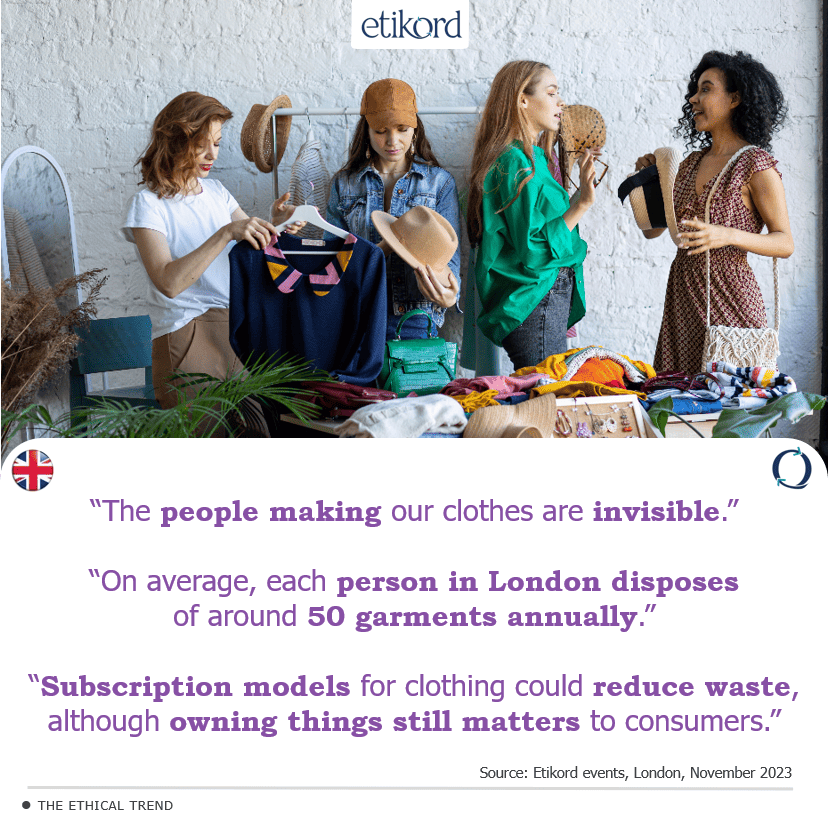Login Account
To view the article please login or create an account
- Clothing & Footwear
- Ethical Consumption Trends
Discussions on Ethical Fashion,
London – Nov. 2023

Why ethical fashion matters?
Participants unanimously emphasised the critical environmental impact, with a staggering amount of clothing waste, and ethical treatment of workers in the fashion supply chain. Transparency issues, with brands often operating in a metaphorical black box, emerged as a significant concern. Humanising the supply chain and enhancing transparency were deemed imperative.
Top of mind ethical brands and trends: Discussions navigated challenges faced by brands in optimising supply chains within cost constraints. Tensions between profitability and fair wages underscored the need for systemic change. Highlighted ethical fashion champions included People Tree, Mother of Pearl, PANGAIA and Patagonia with its “repair, don’t replace” ethos. Concerns about climate impact, child labour, and waste prompted a shift towards sustainable and vintage fashion, exemplified by Beyond Retro and initiatives like clothing rental such as The Devout.
Digital innovation and its dilemmas: Technological innovations, such as AI and blockchain, were identified as transformative forces in ethical fashion. Brands like Levi Strauss & Co., PANGAIA and unspun™ were mentioned for their application of these technologies. However, debates persist around potential job displacement, ethical usage of AI, and the proper implementation of blockchain.
Closing the intention-behaviour gap: consumer education and action
A crucial theme centred on the consumer intention-behaviour gap. Despite increased awareness, participants acknowledged the necessity for transparent information, consumer education, and reliable certifications. Collective action, combating greenwashing, and supporting ethical brands with certifications like B Lab (B Corp), Fairtrade International, and Global Organic Textile Standard (GOTS) were emphasised as crucial steps.
Balancing passion and responsibility, a personal journey: Participants shared personal challenges, including the allure of online shopping and the psychological aspects of consumer behaviour. Building a personal brand aligned with ethical choices and overcoming ingrained shopping habits emerged as common threads.
In conclusion, these discussions unveiled the nuanced landscape of ethical fashion in London. As conscientious consumers, there is a shared responsibility to bridge the gap between awareness and action, challenge industry norms, and cultivate a sustainable and equitable future for fashion.
Other Posts


Interested in writing for the community?
Your contributions will nourish our collective intelligence and ignite constructive debates.
Write with us!
